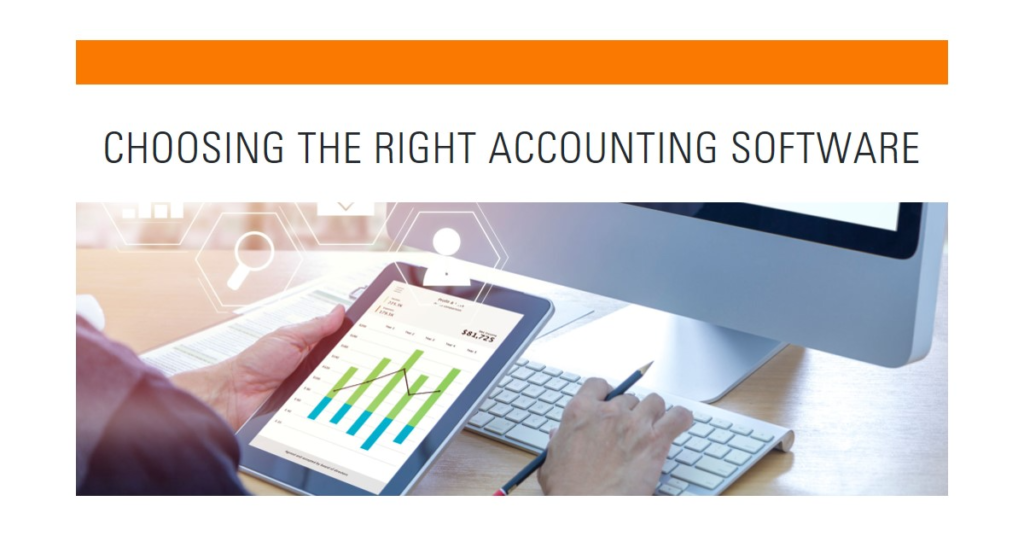Introduction:
In today’s rapidly evolving business landscape, efficient financial management is crucial for the success of any organization. One key component of effective financial management is the utilization of reliable accounting software. Choosing the right accounting software for your business in Pakistan can significantly streamline your operations, enhance accuracy, and improve decision-making.
Definitions:
Accounting Software: Accounting software refers to computer programs designed to manage financial transactions and assist in various accounting activities such as bookkeeping, invoicing, payroll, tax management, and financial reporting.
Process:
Assess your business needs: Start by evaluating your specific accounting requirements. Consider the size of your business, the complexity of your financial transactions, and the industry you operate in. Identify the key functionalities you need, such as invoicing, expense tracking, inventory management, payroll processing, tax management, and financial reporting.
Consider scalability: It’s important to choose accounting software that can grow with your business. Consider whether the software can handle an increase in the volume of transactions and accommodate additional users as your business expands. Scalability ensures that you won’t outgrow the software quickly and need to switch to a new system.
Research available options: Conduct thorough research to identify accounting software options available in Pakistan. Look for reputable software providers that offer solutions suitable for businesses in your industry and of your size. Explore their websites, read product descriptions, and compare features, pricing, and customer reviews.
User-friendliness: Accounting software should be intuitive and user-friendly, especially if you don’t have extensive accounting knowledge. Look for software with a clean and organized interface, easy navigation, and clear instructions. Consider whether the software offers tutorials, training resources, and customer support to assist you in using the system effectively.
Local support availability: In Pakistan, it can be beneficial to choose accounting software that offers local support. Local support teams can provide assistance in understanding local tax regulations, customizing the software to meet local requirements, and resolving any technical issues promptly. Consider the availability and responsiveness of customer support channels such as phone, email, or live chat.
Integration capabilities: Assess the software’s ability to integrate with other systems you currently use or may need in the future. For example, if you use a separate CRM (Customer Relationship Management) software or an inventory management system, ensure that the accounting software can seamlessly integrate with these systems to avoid data duplication and streamline processes.
Security and data protection: Financial data security is of utmost importance. Ensure that the accounting software you choose offers robust security measures such as data encryption, user access controls, and regular data backups. Verify that the software complies with industry standards and regulations regarding data protection.
Cost-effectiveness: Consider the cost of the accounting software, including licensing fees, subscription plans, and additional charges for support or advanced features. Compare the pricing structures of different software options and evaluate whether the features provided align with the cost. Assess the return on investment (ROI) potential of the software based on the efficiencies and benefits it offers to your business.
Seek recommendations and reviews: Reach out to other business owners or professionals in your industry for recommendations on accounting software. Their firsthand experiences and insights can help you make a more informed decision. Additionally, read online reviews and testimonials to gather feedback from existing users about the software’s performance, reliability, and customer support.
Trial and evaluate: Before committing to a particular accounting software, take advantage of free trials or demos offered by software providers. This allows you to test the software’s functionalities, user interface, and overall suitability for your business. Involve key team members in the evaluation process to gather their input and ensure that the software meets their needs as well.
Examples:
QuickBooks:
QuickBooks is a widely used accounting software that offers a range of features suitable for small to medium-sized businesses. It provides tools for invoicing, expense tracking, tax management, and financial reporting. QuickBooks offers different versions tailored to specific industries and business sizes.
Xero:
Xero is a cloud-based accounting software popular for its user-friendly interface and extensive functionality. It offers features such as bank reconciliation, invoicing, inventory management, and payroll processing. Xero also integrates with various third-party applications, making it flexible for business customization.
Case Studies:
Case Study: ABC Trading Company
ABC Trading Company, a medium-sized business in Pakistan, faced challenges in managing their accounts manually. They decided to implement accounting software to improve efficiency and accuracy. After evaluating several options, they chose QuickBooks due to its user-friendly interface, local support availability, and comprehensive features. The software enabled them to automate their invoicing process, track expenses effectively, and generate accurate financial reports, leading to increased productivity and informed decision-making.
Case Study: XYZ Manufacturing Pvt. Ltd.
XYZ Manufacturing Pvt. Ltd., a large-scale manufacturing company in Pakistan, needed an accounting software solution that could handle their complex inventory management and production tracking requirements. After careful evaluation, they opted for SAP Business One, a robust ERP (Enterprise Resource Planning) system with integrated accounting capabilities. The software provided them with real-time visibility into their inventory, streamlined their production processes, and enabled seamless financial integration across departments.
Conclusion:
Selecting the right accounting software for your business in Pakistan is a crucial decision that can significantly impact your financial management processes and overall business performance. Consider factors such as your business size, industry-specific requirements, scalability, user-friendliness, local support availability, and integration capabilities with other systems. Examples like QuickBooks and Xero showcase popular accounting software options suitable for small to medium-sized businesses, while larger enterprises may benefit from comprehensive ERP solutions like SAP Business One. Case studies of ABC Trading Company and XYZ Manufacturing Pvt. Ltd. highlight the positive outcomes of implementing appropriate accounting software. By making an informed choice, you can streamline your financial operations, enhance accuracy, and gain valuable insights to drive your business towards success in the dynamic business landscape of Pakistan.
